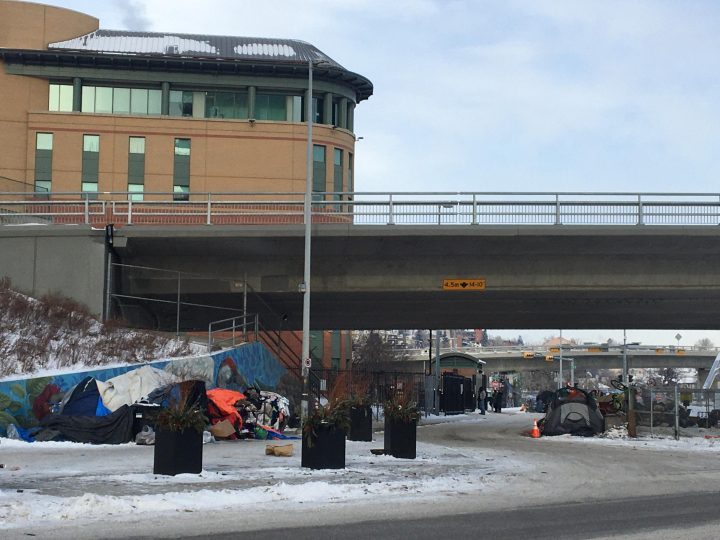Workers at the Calgary Drop-In and Rehab Centre have started unionization efforts after facing years of unsafe working conditions and unlivable wages, the Canadian Union of Public Employees (CUPE) said.

CUPE said in a statement on Wednesday that Calgary Drop-In staff are paid below the Alberta government’s housing income threshold. In Calgary, the income threshold for a subsidized one-bedroom apartment is a salary of $44,000 a year.
CUPE also said Calgary Drop-In workers do not receive shift premiums when working evening or overnight.
Meanwhile, data from the Canada Revenue Agency’s registered charity information bank revealed that executives were paid between $160,000 and $299,999 in 2020.
CUPE organizer Dominique Damian-Wallace told 770 CHQR workers are mostly worried about their safety.
“Workers are dealing with overdoses, especially with the closure of safe consumption sites, and they’re seeing an increased use of drugs in the shelters,” Damian-Wallace said.
“They’re also dealing with increased violence, assaults and trauma. They’re hearing draining stories and not getting the support they need. There’s not a lot of support to allow for that grieving process as well as just dealing with the impacts of trauma.

Get daily National news
“So in reality, the number one concerns are not wages because people in social work aren’t here for the wages … They want their voices heard.”
Damian-Wallace said she’s heard complaints from Calgary Drop-In staff about the executives’ wages and called their high salaries “disgraceful.” Staff are not paid a living wage and often have to apply for government-subsidized housing while helping their unhoused clients fill out their applications, she said.
“They’re in direct competition with the vulnerable community members they are serving, and that’s something the non-profit agency really needs to re-evaluate.”
“The cost of living has gone up and nobody had seen a raise in about five years… The executives all got raises across the board and they’re seeing bonuses as well,” Damian-Wallace said.
But Damian-Wallace said the road to unionization will be difficult because Alberta’s unionization laws are “rigged against workers.”
Forty per cent of a workplace’s employees have to sign a petition before they get the right to vote to unionize, and signatures expire after 90 days.
- Alberta government to review intersection where 3 junior hockey players died in crash
- ‘These boys were all of our kids’: Hockey community mourns players killed in crash
- ‘Only heavy hearts’: Tributes pour in for 3 junior hockey players killed in Alberta collision
- Danielle Smith says Alberta will withhold funding for judges without more input on selection
“Calgary Drop-In is a huge place. It’s really hard to see the workers struggling to reach out to all their co-workers within that 90-day period. The signatures have expired at least twice,” Damian-Wallace said.
“It’s really hard to say how long this will take.”
The Calgary Drop-In Centre declined 770 CHQR’s request for an interview but provided a statement in response.
“The Calgary Drop-In Centre (The DI) is a values-driven agency with a strong belief in the work that we do. Above all else, we know that the staff serving Calgary’s most vulnerable are the backbone of this organization, and we are continually committed to improving the staff experience,” the statement read.
“The DI strives to be an employer of choice, and will continue to engage with our employees as we seek to fulfill our mission, vision, and values together.”









Comments